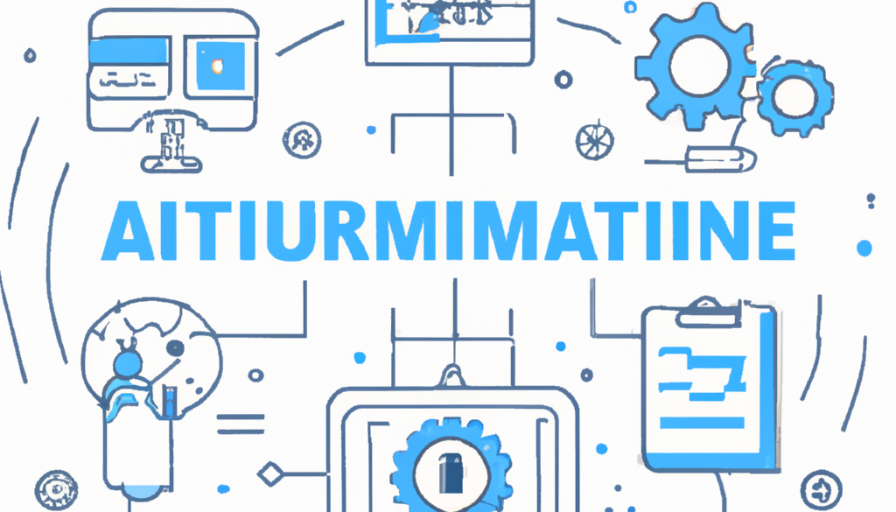AI Powered Automation Solutions for Healthcare
Healthcare industry has witnessed a rapid transformation in recent years, with the introduction of Artificial Intelligence (AI) and automation technologies revolutionizing the way healthcare services are delivered. AI-powered automation solutions have the potential to streamline processes, improve efficiency, and enhance patient care outcomes. In this article, we will explore the various applications of AI-powered automation solutions in the healthcare sector and how they are transforming the industry.
Enhancing Medical Diagnostics
One of the key applications of AI-powered automation solutions in healthcare is in the field of medical diagnostics. AI algorithms can analyze vast amounts of patient data, including medical images, lab results, and patient history, to assist healthcare professionals in making accurate diagnoses. By leveraging machine learning and deep learning techniques, AI can identify patterns and anomalies that may be difficult for human experts to detect. This can significantly improve the accuracy and speed of diagnosing various conditions, including cancer, cardiovascular diseases, and neurological disorders.
Personalized Treatment Plans
AI-powered automation solutions also play a crucial role in designing personalized treatment plans for patients. By analyzing a patient’s medical records, genetic information, and lifestyle data, AI algorithms can identify the most effective treatment options tailored to individual needs. This can lead to better patient outcomes and reduced healthcare costs by avoiding unnecessary procedures and medications. Additionally, AI can continuously monitor patient progress, adjusting treatment plans in real-time based on the latest data, ensuring optimal care throughout the treatment process.
Streamlining Administrative Tasks
In addition to clinical applications, AI-powered automation solutions are revolutionizing the administrative side of healthcare. Tasks such as appointment scheduling, billing, and medical coding can be automated, reducing the administrative burden on healthcare professionals and freeing up their time for more critical tasks. AI-powered chatbots can also handle patient inquiries, providing instant responses and assistance, improving patient satisfaction and reducing wait times. By automating these processes, healthcare organizations can improve operational efficiency and focus on delivering high-quality care.
Predictive Analytics for Early Intervention
AI-powered automation solutions enable predictive analytics, which can be instrumental in identifying potential health issues at an early stage. By analyzing large datasets and patient health records, AI algorithms can identify risk factors, predict disease progression, and recommend preventive measures. This proactive approach allows healthcare providers to intervene early, potentially preventing the development of chronic conditions and improving patient outcomes. Predictive analytics can also help healthcare organizations allocate resources more effectively, ensuring that they are prepared for future healthcare needs.
Enhancing Medical Research and Drug Discovery
AI-powered automation solutions are transforming the field of medical research and drug discovery. By analyzing vast amounts of scientific literature, clinical trial data, and genomic information, AI algorithms can identify potential drug targets, predict drug efficacy, and accelerate the drug discovery process. This can significantly reduce the time and cost involved in bringing new drugs to market. AI can also aid in the design and execution of clinical trials, helping researchers identify suitable patient populations and optimize trial protocols for better outcomes.
Ethical Considerations and Challenges
While AI-powered automation solutions offer significant benefits to the healthcare industry, there are also ethical considerations and challenges to address. Privacy and security of patient data are paramount, and robust measures must be in place to ensure data protection. Additionally, transparency and explainability of AI algorithms are crucial to gain trust and acceptance from healthcare professionals and patients. It is also important to mitigate biases in AI algorithms, as they can impact the accuracy and fairness of diagnostic and treatment recommendations.
Conclusion
AI-powered automation solutions have the potential to revolutionize the healthcare industry, enhancing diagnostics, personalizing treatment plans, streamlining administrative tasks, enabling early intervention, and accelerating medical research. However, careful consideration must be given to ethical considerations and challenges to ensure the responsible and effective deployment of AI in healthcare. By embracing AI-powered automation solutions, healthcare organizations can improve patient care outcomes, optimize resource allocation, and drive innovation in the constantly evolving field of healthcare.


